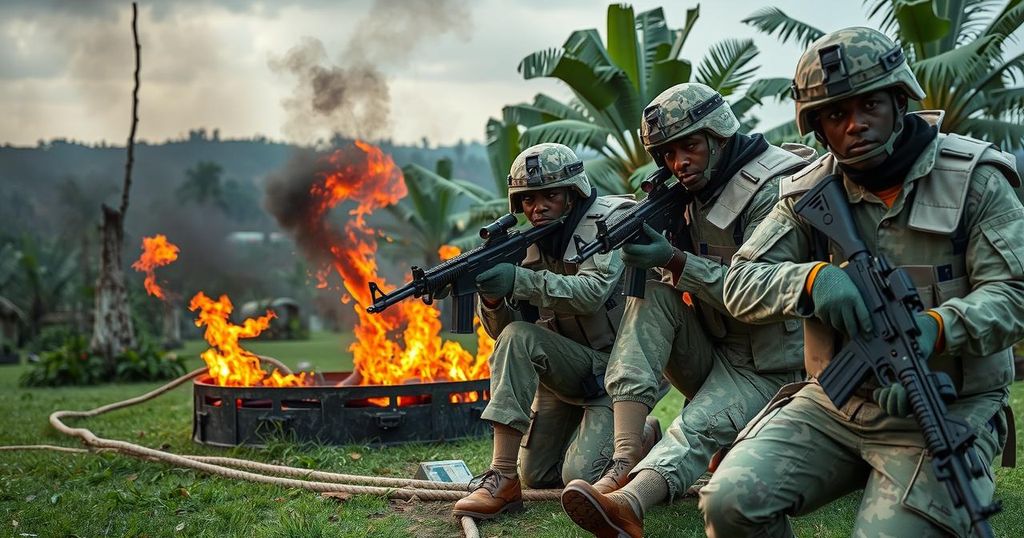In North Kivu, DR Congo, more than 290,000 people fled their homes in December due to escalating conflicts involving the M23 and ADF rebel groups, increasing the total number of displaced individuals to 2.7 million. The humanitarian crisis is worsened by the strategic power struggles in areas like Masisi, demonstrating the urgent need for effective resolution and aid.
In North Kivu, Democratic Republic of Congo, recent reports indicate heavy clashes between the national army and the M23 rebel group. In December, over 290,000 individuals were displaced due to ongoing violence in the Lubero region, bringing the total number of internally displaced persons in North Kivu to a staggering 2.7 million, as reported by the UN Office for the Coordination of Humanitarian Affairs (OCHA).
The humanitarian crisis is exacerbated by actions from the M23 and the Allied Democratic Forces (ADF), the latter known for its Islamist affiliation and long-whispered terror activities across the region. Conflict has intensified particularly around the town of Masisi, which has exchanged hands between the rebels and Congolese military forces multiple times, complicating the situation further.
The M23 has reportedly received support from Rwandan military personnel and aviation, leading to concerns over the group’s capacity to conduct sustained offensive operations against the government forces. Despite efforts for peace talks, the violence appears unrelenting, putting vulnerable populations at further risk.
While the regular military and pro-government militias organize to counter the insurgency, the fragile state of stability continues to threaten the region’s safety and humanitarian conditions.
The Democratic Republic of Congo has been plagued by prolonged conflicts that have resulted in significant internal displacement and humanitarian crises. North Kivu, in particular, has been a hotspot for violence due to its strategic importance and the presence of various armed groups. The M23, a group with reported backing from Rwanda, and the ADF, a notorious Ugandan rebel faction, are central to these conflicts. The region’s political instability is a result of failed peace negotiations and ongoing confrontations, contributing to a cycle of violence that displaces millions and complicates humanitarian efforts. The saturation of armed groups and the failure to secure peace negotiations have perpetuated a dire humanitarian landscape, necessitating urgent international attention.
In summary, the situation in North Kivu serves as a stark reminder of the complex humanitarian crises fueled by ongoing conflicts. The alarming number of internally displaced persons underscores the urgent need for effective conflict resolution and assistance for the affected populations. As violence and instability persist, addressing the roots of these conflicts will be vital to restore peace and security in the region.
Original Source: www.fides.org






